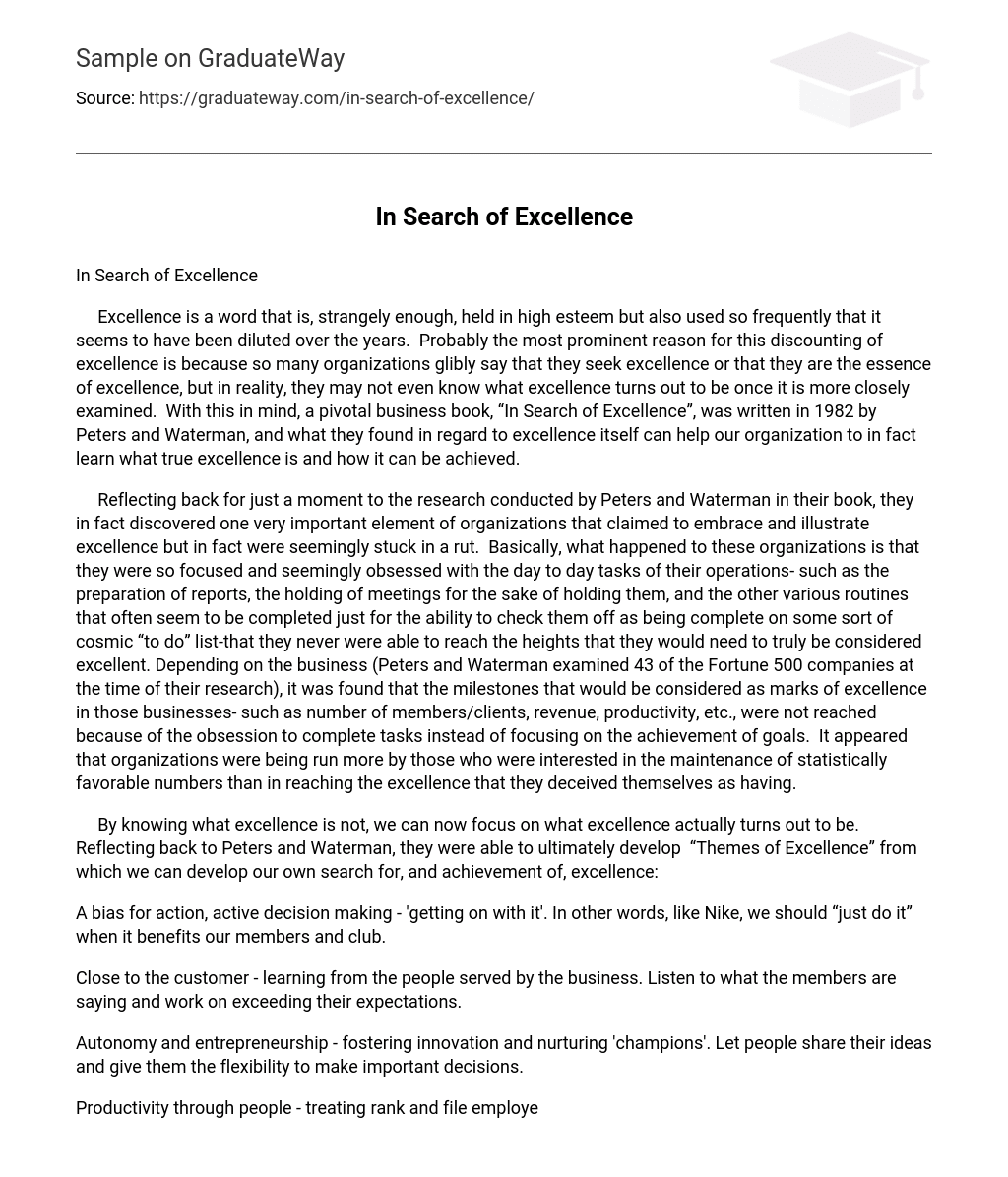Excellence is a word that is, strangely enough, held in high esteem but also used so frequently that it seems to have been diluted over the years. Probably the most prominent reason for this discounting of excellence is because so many organizations glibly say that they seek excellence or that they are the essence of excellence, but in reality, they may not even know what excellence turns out to be once it is more closely examined. With this in mind, a pivotal business book, “In Search of Excellence”, was written in 1982 by Peters and Waterman, and what they found in regard to excellence itself can help our organization to in fact learn what true excellence is and how it can be achieved.
Reflecting back for just a moment to the research conducted by Peters and Waterman in their book, they in fact discovered one very important element of organizations that claimed to embrace and illustrate excellence but in fact were seemingly stuck in a rut. Basically, what happened to these organizations is that they were so focused and seemingly obsessed with the day to day tasks of their operations- such as the preparation of reports, the holding of meetings for the sake of holding them, and the other various routines that often seem to be completed just for the ability to check them off as being complete on some sort of cosmic “to do” list-that they never were able to reach the heights that they would need to truly be considered excellent. Depending on the business (Peters and Waterman examined 43 of the Fortune 500 companies at the time of their research), it was found that the milestones that would be considered as marks of excellence in those businesses- such as number of members/clients, revenue, productivity, etc., were not reached because of the obsession to complete tasks instead of focusing on the achievement of goals. It appeared that organizations were being run more by those who were interested in the maintenance of statistically favorable numbers than in reaching the excellence that they deceived themselves as having.
By knowing what excellence is not, we can now focus on what excellence actually turns out to be. Reflecting back to Peters and Waterman, they were able to ultimately develop “Themes of Excellence” from which we can develop our own search for, and achievement of, excellence:
A bias for action, active decision making – ‘getting on with it’. In other words, like Nike, we should “just do it” when it benefits our members and club.
Close to the customer – learning from the people served by the business. Listen to what the members are saying and work on exceeding their expectations.
Autonomy and entrepreneurship – fostering innovation and nurturing ‘champions’. Let people share their ideas and give them the flexibility to make important decisions.
Productivity through people – treating rank and file employees as a source of quality. Everyone on the team has something to contribute.
Hands-on, value-driven – management philosophy that guides everyday practice – management showing its commitment. Ask how something will improve the organization, not pinching the pennies or obsessing on the unimportant details.
Stick to the knitting – stay with the business that you know. This speaks for itself.
In conclusion, what we need to do in our search for excellence is to focus on results and doing those things that produce results. This will save us time, frustration and money. Most importantly, it will truly make us excellent!





